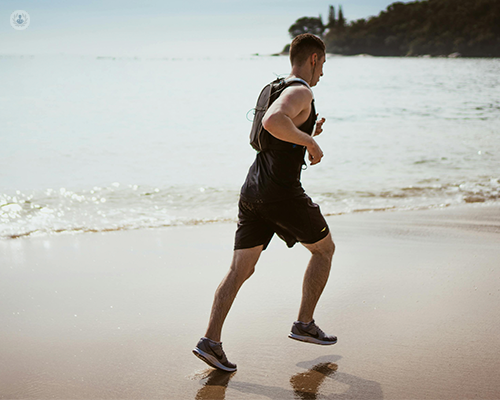Top 5 lifestyle changes to reduce your risk of benign prostate disorders
Autore:Benign prostate disorders, such as benign prostatic hyperplasia, are common as men age. While these conditions cannot be completely prevented, certain lifestyle changes can help reduce the risk and improve overall prostate health. Below, we address some of the main questions patients may have on this topic.

How does diet affect prostate health?
A balanced diet plays a esencial role in maintaining a healthy prostate. It is recommended to eat a diet rich in fruits, vegetables, whole grains, and fish, which provide antioxidants, fibre, and omega-3 fatty acids. These nutrients have anti-inflammatory properties that may reduce the risk of prostate enlargement. Avoiding processed foods, high in saturated fats and sugars, is an unhealthy diet can contribute to chronic inflammation and negatively affect prostate health.
Does regular physical exercise lower the risk of benign prostate disorders?
Exercise offers numerous benefits for overall health, including prostate health. Staying active helps control body weight, which is important since being overweight is associated with an increased risk of developing benign prostatic hyperplasia. Activities like walking, swimming, or cycling can be particularly beneficial. Exercise also improves blood circulation, which can support better long-term prostate health.
How does alcohol consumption influence the risk of benign prostate disorders?
Excessive alcohol intake has been linked to a higher risk of prostate problems. While moderate alcohol consumption may not be harmful, regular heavy drinking can increase the risk of inflammation and prostate enlargement. Reducing alcohol consumption, or even eliminating it, is a simple step that can contribute to better prostate health.
What role does stress management play in prostate health?
Chronic stress can affect overall health and also has an impact on the prostate. Stress can lead to muscle tension in the pelvic area, which may worsen the symptoms of prostate enlargement or trigger urinary discomfort. Practising relaxation techniques, such as meditation, yoga, or simply maintaining a balanced lifestyle, can help lower stress levels and improve prostate health.
Does caffeine consumption affect prostate health?
Caffeine, found in coffee, tea, and other beverages, can irritate the bladder and worsen urinary symptoms associated with benign prostate disorders. Reducing caffeine intake, especially for individuals already experiencing urinary symptoms, can help alleviate discomfort and improve quality of life.


